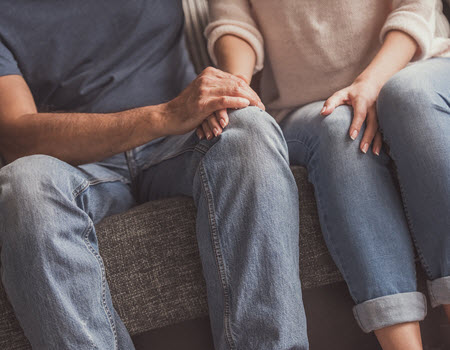 “What will others think?”
“What will others think?”
Before a new haircut, a new job, a new change, all you can think is, “What if others don’t like it? How will I handle that rejection?”
Friends owe you money. Your kids constantly need you to bail them out of trouble.
Things are too chaotic at home, so your husband’s angry at YOU.
Feeling guilty all the time, you set goals for healthy eating, going back to school, and getting back to the gym, but that never seems to happen.
You are always last.
It turns out that codependency is typically a learned behavior that can be passed down from one generation to another.
It is an emotional and behavioral condition that affects an individual’s ability to have a healthy, mutually satisfying relationship. It is also known as “relationship addiction” because people with codependency often form or maintain relationships that are one-sided, emotionally destructive, or abusive.
The problem is that these repeated rescue attempts allow the needy individual to continue a destructive course and to become even more dependent on the unhealthy caretaking of the “benefactor.” As this reliance increases, the codependent develops a sense of reward and satisfaction from “being needed.”
When the caretaking becomes compulsive, the codependent feels choiceless and helpless in the relationship. But they cannot break away from the cycle of behavior that causes it. Codependents view themselves as victims and are attracted to that same weakness in love and friendship relationships.
 The first step in changing unhealthy behavior is to understand it.
The first step in changing unhealthy behavior is to understand it.
Because codependency is usually rooted in a person’s childhood, treatment often involves exploring early childhood issues and their relationship to current destructive behavior patterns.
Treatment includes education, experiential groups, and individual and group therapy through which codependents rediscover themselves and identify self-defeating behavior patterns. It also focuses on helping patients get in touch with feelings that have been buried during childhood and on reconstructing family dynamics.
The goal is to allow them to experience their full range of feelings again.
It is important for codependents and their family members to educate themselves about the course and cycle of addiction and how it extends into their relationships. Libraries, drug and alcohol abuse treatment centers, and mental health centers often offer educational materials and programs.
A lot of change and growth is necessary for the codependent and his or her family. Any caretaking behavior that allows or enables abuse to continue in the family needs to be recognized and stopped.
The codependent must identify and embrace his or her feelings and needs. I can teach you techniques such as learning to say “no,” to be loving yet tough, and learning to be self-reliant.
Most of my clients report increased freedom, love, and serenity in their recovery.
Hope lies in learning more.
Get in touch with me today!
The more you understand codependency, the better you can cope with its effects. Reaching out for information and assistance can help you live a healthier, more fulfilling life.
Call me for a free 15-minute phone consultation: (615) 905-1893.

